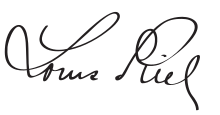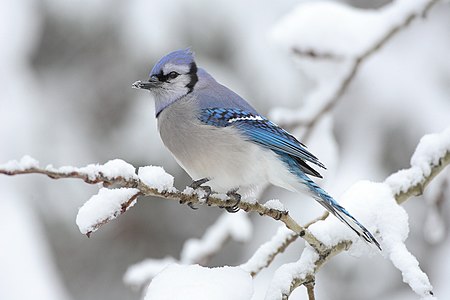
Back بوابة:كندا Arabic Portal:Kanada Azerbaijani پوْرتال:کانادا AZB Партал:Канада BE-X-OLD Портал:Канада Bulgarian دەروازە:کەنەدا CKB Portál:Kanada Czech Portal:Kanada German Portal:Kanada DIQ Portal:Canadá Spanish
| Showcase | Content | Contributing |
Introduction
Canada is a country in North America. Its ten provinces and three territories extend from the Atlantic Ocean to the Pacific Ocean and northward into the Arctic Ocean, making it the world's second-largest country by total area, with the world's longest coastline. Its border with the United States is the world's longest international land border. The country is characterized by a wide range of both meteorologic and geological regions. It is a sparsely inhabited country of 40 million people, the vast majority residing south of the 55th parallel in urban areas. Canada's capital is Ottawa and its three largest metropolitan areas are Toronto, Montreal, and Vancouver.
Canada is a parliamentary democracy and a constitutional monarchy in the Westminster tradition. The country's head of government is the prime minister, who holds office by virtue of their ability to command the confidence of the elected House of Commons and is "called upon" by the governor general, representing the monarch of Canada, the ceremonial head of state. The country is a Commonwealth realm and is officially bilingual (English and French) in the federal jurisdiction. It is very highly ranked in international measurements of government transparency, quality of life, economic competitiveness, innovation, education and gender equality. It is one of the world's most ethnically diverse and multicultural nations, the product of large-scale immigration. Canada's long and complex relationship with the United States has had a significant impact on its history, economy, and culture.
A developed country, Canada has a high nominal per capita income globally and its advanced economy ranks among the largest in the world, relying chiefly upon its abundant natural resources and well-developed international trade networks. Recognized as a middle power, Canada's strong support for multilateralism and internationalism has been closely related to its foreign relations policies of peacekeeping and aid for developing countries. Canada is part of multiple international organizations and forums. (Full article...)
Featured article -
The Invasion of Quebec (June 1775 – October 1776, French: Invasion du Québec) was the first major military initiative by the newly formed Continental Army during the American Revolutionary War. The objective of the campaign was to seize the Province of Quebec (part of modern-day Canada) from Great Britain, and persuade French-speaking Canadiens to join the revolution on the side of the Thirteen Colonies. One expedition left Fort Ticonderoga under Richard Montgomery, besieged and captured Fort St. Johns, and very nearly captured British General Guy Carleton when taking Montreal. The other expedition, under Benedict Arnold, left Cambridge, Massachusetts, and traveled with great difficulty through the wilderness of Maine to Quebec City. The two forces joined there, but they were defeated at the Battle of Quebec in December 1775. (Full article...)
Featured biography -

Louis Riel (/ˈluːi riˈɛl/; French: [lwi ʁjɛl]; 22 October 1844 – 16 November 1885) was a Canadian politician, a founder of the province of Manitoba, and a political leader of the Métis people. He led two resistance movements against the Government of Canada and its first prime minister John A. Macdonald. Riel sought to defend Métis rights and identity as the Northwest Territories came progressively under the Canadian sphere of influence. (Full article...)
Selected panorama -
National symbol -
The Canada goose (Branta canadensis), sometimes called Canadian goose, is a large wild goose with a black head and neck, white cheeks, white under its chin, and a brown body. It is native to the arctic and temperate regions of North America, and it is occasionally found during migration across the Atlantic in northern Europe. It has been introduced to France, the United Kingdom, Ireland, Finland, Sweden, Denmark, New Zealand, Japan, Chile, Argentina, and the Falkland Islands. Like most geese, the Canada goose is primarily herbivorous and normally migratory; often found on or close to fresh water, the Canada goose is also common in brackish marshes, estuaries, and lagoons. (Full article...)
Selected vital article -
The military history of Canada comprises centuries of conflict within the territory, and interventions by the Canadian military in conflicts and peacekeeping missions worldwide. For millenia, the area comprising modern Canada saw sporadic conflicts among Indigenous peoples. In the 17th and 18th centuries, Canada was the site of several colonial conflicts, including four major colonial wars between New France and British America. The conflicts spanned nearly 70 years, and also involved various First Nations. (Full article...)
Selected picture -
Current events
- May 17, 2024 –
- The RCMP identifies the killer of four people in Calgary, Alberta, Canada, in 1976 and 1977 as American serial rapist Gary Allen Srery, who died in prison in 2011. (CFCN-TV)
- May 16, 2024 – Israel–Hamas war
- Global Affairs Canada announces sanctions on four "extremist" Israeli settlers in the West Bank for engaging in violence against Palestinian civilians and their property. (CBC News)
- May 15, 2024 – 2024 Canada wildfires
- Authorities evacuate over 6,000 people as wildfires approach the city of Fort McMurray, Alberta, Canada. (Reuters) (NPR)
- May 12, 2024 –
- Wildfires in British Columbia and Alberta, Canada, force thousands to evacuate. (CNN)
- May 3, 2024 – Canada–India diplomatic row
- Three Indian men are arrested in Canada and charged with the murder of Sikh separatist leader Hardeep Singh Nijjar last year. The Canadian government is investigating whether the men had ties to the Indian government. (Reuters) (Toronto Star)
- April 12, 2024 – War in Sudan
- Canada pledges $132.2 million dollars to Sudan to help people affected by the country's ongoing humanitarian crisis. (Global News)
Did you know -

- ... that Tory MP John Solomon Cartwright refused a request by the governor-general of the Province of Canada to join the government, because he would not sit in Cabinet with radical Francis Hincks?
- ... that Irene Parlby was one of The Famous Five, a group of women in Canada who fought for the right of women to be considered "persons"?
- ... that before the House of Commons of Canada considers a taxation or spending bill, a royal recommendation has to be given by the governor general?
- ... that Canadian brothers Graeme and Jacob Saunders learned to sail at the Chester Yacht Club, and campaigned a two-person dinghy in the 2016 Summer Olympics?
- ... that Canadian poets Milton Acorn, Margaret Atwood, and Gwendolyn MacEwen performed at the Bohemian Embassy on the same bill as burlesque dancer Libby Jones?
- ... that the only populated place on Kaipokok Bay in Labrador, Canada, is Postville?
- ... that mountaineer Edmund Hillary asked Canadian doctor Joan Ford to take her "Adidas runners, a stethoscope and an umbrella" and get to the Himalayas?
Featured list -
The Tip O'Neill Award is given annually to a Canadian baseball player who is "judged to have excelled in individual achievement and team contribution while adhering to the highest ideals of the game of baseball." The award was created by the Canadian Baseball Hall of Fame and first presented in 1984. It is named after James "Tip" O'Neill, one of the earliest Canadian stars in Major League Baseball (MLB). (Full article...)
Main articles
Associated Wikimedia
The following Wikimedia Foundation sister projects provide more on this subject:
-
Commons
Free media repository -
Wikibooks
Free textbooks and manuals -
Wikidata
Free knowledge base -
Wikinews
Free-content news -
Wikiquote
Collection of quotations -
Wikisource
Free-content library -
Wikiversity
Free learning tools -
Wikivoyage
Free travel guide -
Wiktionary
Dictionary and thesaurus
© MMXXIII Rich X Search. We shall prevail. All rights reserved. Rich X Search






























